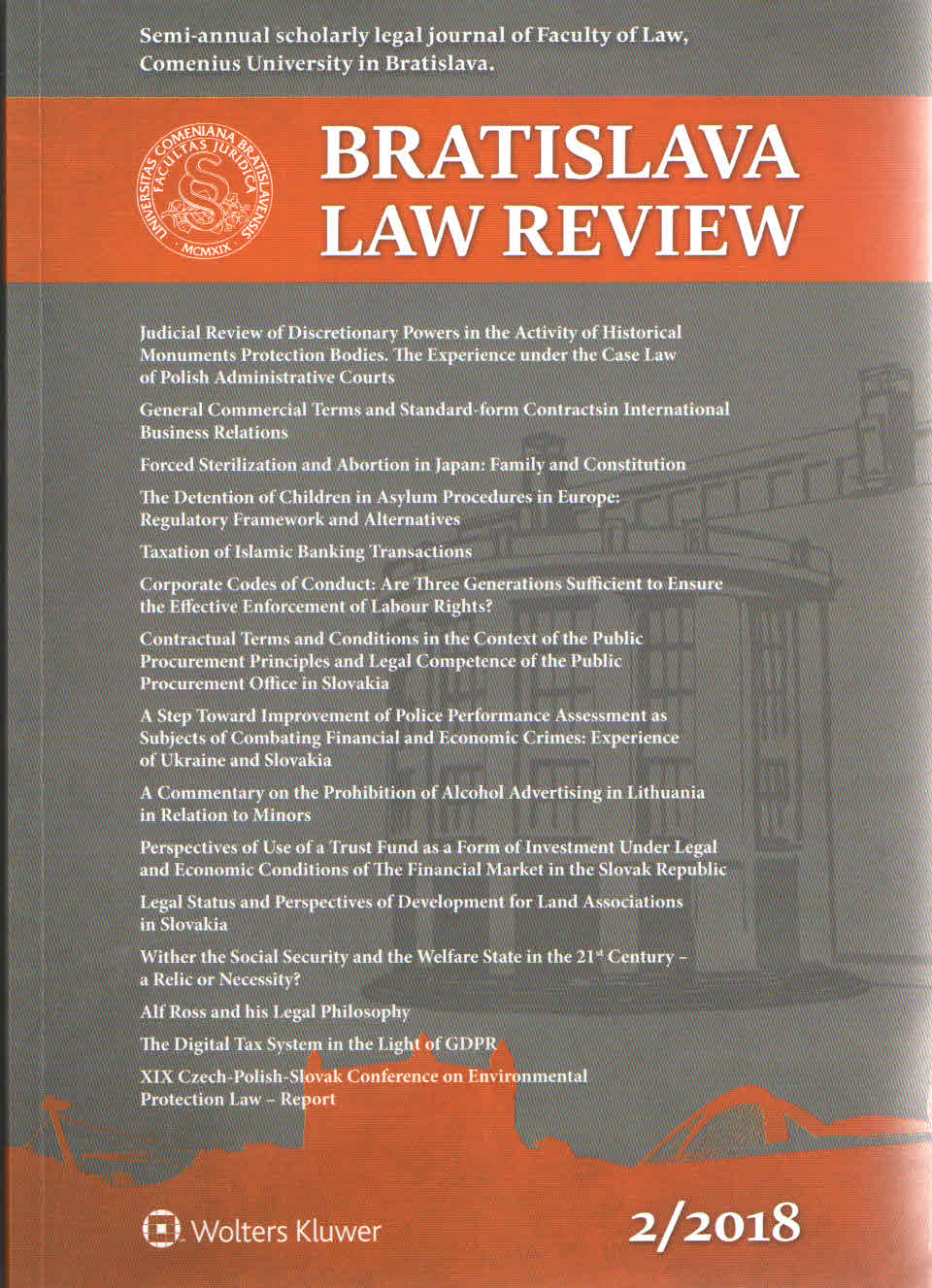FORCED STERILIZATION AND ABORTION IN JAPAN: FAMILY AND CONSTITUTION
FORCED STERILIZATION AND ABORTION IN JAPAN: FAMILY AND CONSTITUTION
Author(s): Yuichiro TsujiSubject(s): Constitutional Law, Civil Law, Health and medicine and law
Published by: Univerzita Komenského v Bratislave
Keywords: judicial review; Japan; sterilization; concrete review; compensation; minority;
Summary/Abstract: This study analyzes the fight between the Japanese judiciary and legislature. In Japan, under the ex-Eugenic Protection Act, disabled people were obligated to undergo sterilization procedures for about 20 years. This surprising Act was established in 1948 and enabled doctors to sterilize people in order to eliminate hereditary diseases; they could also perform this procedure on physically or developmentally disabled people without their consent. The 2016 Committee on the Elimination of Discrimination against Women advised that research and compensation is urgent and necessary, but the government stated that it was a legal medical operation, and no compensation was necessary. Even under concrete judicial review, the judiciary in Japan may exercise its power to provide remedies for minorities who cannot amend statutes in the political process, or their constitutional rights will be infringed upon. This study argues that even concrete judicial reviews work to prevent serious damage before it occurs. This study will use a legal approach to review the first voting rights decision, as well as several decisions that are relevant to families in Japan.
Journal: Bratislava Law Review
- Issue Year: 2/2018
- Issue No: 2
- Page Range: 50-63
- Page Count: 14
- Language: English

